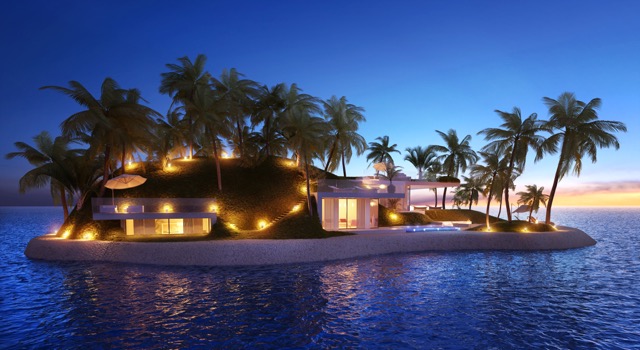
The age-old dream about ‘having your own private island’ has taken on a whole new meaning these days.
Up until recently, you’d probably need a top-shelf real estate agent to track down that little piece of heaven in some far-flung tropical locale.
But now, there is another way to make your dream come true – simply buy a man-made portable island.
The portable island concept has been developed with architect Koen Olthuis of Waterstudio.nl and water-based design specialists Dutch Docklands. The result? New luxury private islands that can give owners a secluded taste of paradise anywhere in the world.
Studies conducted over the past 10 years showed that the next trend in ultra-luxury real estate would be private islands, with the focus on more intimacy and lifestyle freedom.
Enter Olthuis and Dutch Docklands, who design the structure of each island. Buyers are then invited to customize the size, shape and style of their personal residence from scratch and choose where they want to be located.
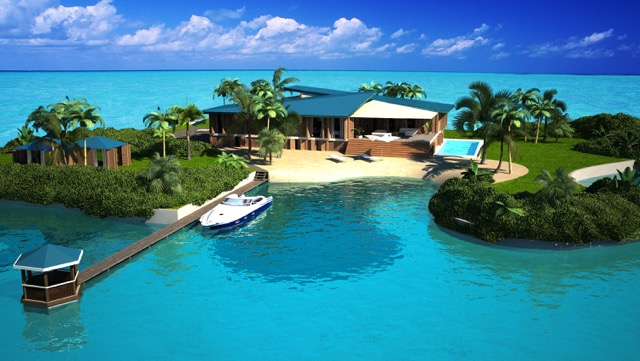
There are a number of initiatives in the works, but an introductory project, called The 5 Lagoons, features Dutch Docklands in a joint venture with the government of Maldives. They are master developers of the entire project and control the design, engineering, financing, construction and sales, with Waterstudio.nl as the architectural firm.
With privacy as the key, each island will have its own residence, garden, pool, beach, and more. And part of a new trend in green developments, says Olthuis in a published report, luxury and quality will be combined with a scarless, self-sufficient approach.
The customized concept is an important element, in that each owner is encouraged to jump in with both feet, right from the outset.
Previously, most traditional private islands tended to be isolated and difficult to reach, which made construction and maintenance expensive. The man-made model makes those disadvantages a thing of past.
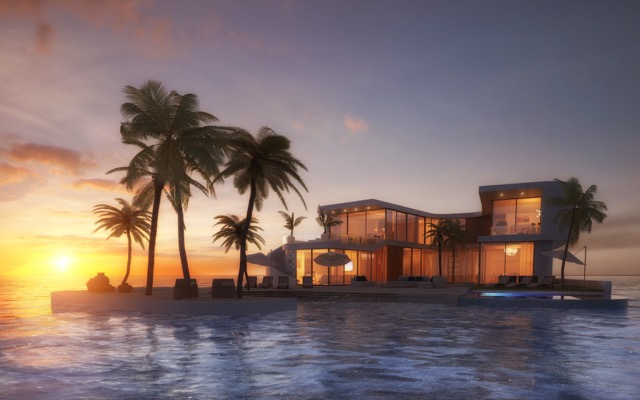
The private islands can be placed virtually anywhere. With a combination of unique technology and craftsmanship, and detailed location studies, the exact methods for creating and mooring the islands will be determined. Using piles or cables, attention will be paid to have minimum impact to the sea bottom.
Designers say there is no environmental impact because each island will be completely self-sufficient and equipped with state-of-the-art green technology. Living with water, they say, creates sustainable long-term solutions that have zero impact on the environment.
The developers have partnered with the Ocean Futures Society – established by French conservationist Jean-Michel Cousteau, son of famous oceanographer Jacques Cousteau – to protect and enhance marine habitats under the islands. They will investigate new and better ways to enhance the reaction of artificial reefs below the islands.
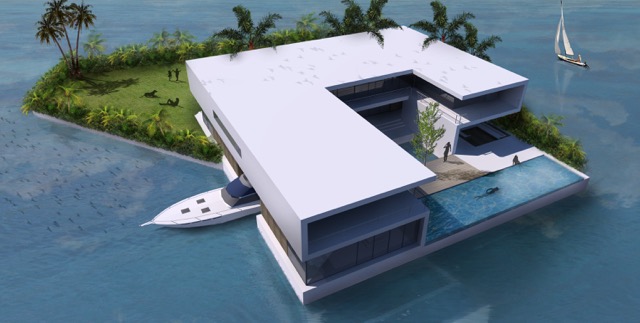
In a published report, Cousteau said: “Our association makes sure that the ocean is being respected and that the environmental impact is near zero. To be able to protect the environment which will be under those structures is one of the most exciting times of my life.”
Free from environmental impact, and safe from rising sea levels, the islands will also create a new underwater habitat for sea life. Not only that, the social impact of the islands is also being considered, and floating schools, purification plants, housing and agriculture plots will be created alongside the luxury properties.
Moreover, a clear trend is also emerging to take the concept to another level – creating resorts that float on the water.
Waterstudio.nl, led by Koen Olthuis, specializes in architecture, urban planning and research related to living, working and recreation on water.
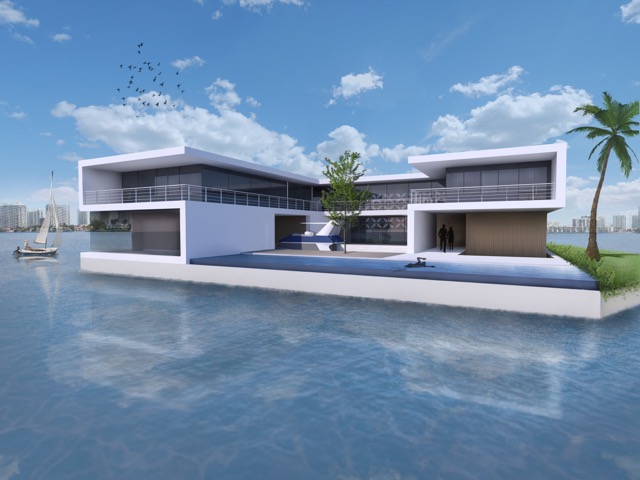 Web / waterstudio.nl
Web / waterstudio.nl